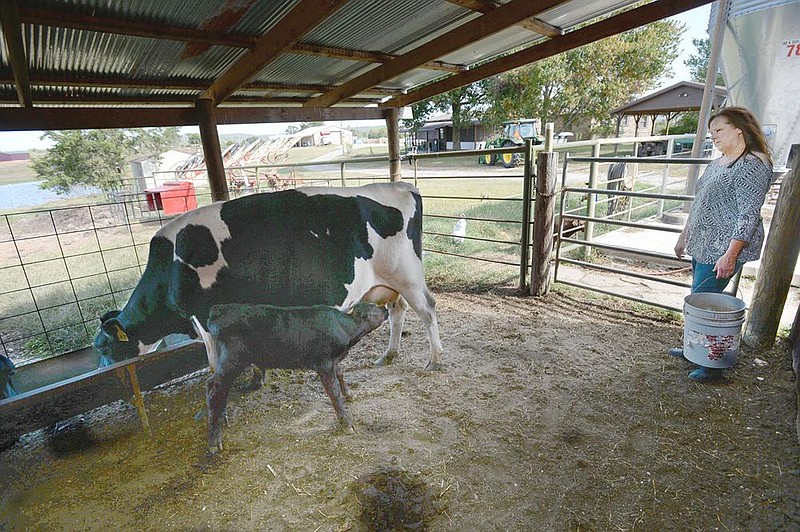Ranchers these days have a problem, but it's a good one.
Demand for locally produced meat and produce has taken off during the coronavirus pandemic. When grocery stores ran out of steak and ground beef earlier this year, customers searched online for nearby farmers selling product from their makeshift stores or from their pickups.
"Business has just exploded," said Michael Lee of Flying C Ranch in Conway. In the past six months, Lee said he can't feed out his cattle fast enough.
The problem is in the processing. There are dozens of corporate-owned meat and poultry plants across the state, but farmers and ranchers who want to sell packaged products directly to customers, by law, have a choice of three small processors, in Van Buren, Pottsville and Winslow.
[CORONAVIRUS: Click here for our complete coverage » arkansasonline.com/coronavirus]
Before the pandemic hit, farmers and ranchers said it was common to wait two or three months for processing orders. Today, processors are booked more than a year in advance.
"I'm planning into 2022 for animals that aren't even born yet," Lee said. "It's been frustrating. We have the supply of animals to meet the demand for the consumer -- it's just the bottleneck at the processing plant."
Efforts to help are underway. In August, the Arkansas Department of Agriculture received $5 million through the federal coronavirus relief measure to allow custom meat processors to expand and upgrade their facilities. Currently, there are 50 custom processing facilities across the state and nearly all of them lack federal inspectors, making the products ineligible for sale.
Part of the problem is the cost outweighs the benefit, said Brian Fairchild of Fairchild Farms near Harrison. The processors that have an inspector with the U.S. Department of Agriculture charge about the same as the processors without.
[RELATED » Interactive: Economic impacts of covid-19 » arkansasonline.com/economy/]
"There's no real incentive there for them to be USDA because it's an additional cost for them," he said.
The Arkansas Farm Bureau and the Department of Agriculture are expecting the grants to cover startup costs so farmers and ranchers have more processing options down the road. They also are working on a potential state-inspection program that could receive more congressional support during the pandemic.
When the virus that causes covid-19 took hold in March, businesses shut down, workers became sick and food production slowed across the country, creating a backlog of animals and supply disruptions at stores. This led to reports of large-scale farmers smashing eggs, culling hogs and dumping milk to control supply.
At the local level things have become better. Fairchild said meat sales have been strong during the pandemic, "if you can get it processed."
"I've not been able to get anything processed in the last three months," he said. "Demand was there, I just wasn't able to take full advantage of it."
[Gallery not loading above? Click here for more photos » arkansasonline.com/104covidcattle/]
To help customers connect with local producers, the Arkansas Cattlemen's Association added a state beef directory to its website this summer in response to the pandemic. Spokesman Michelle Bufkin said the organization hopes it can keep local demand going as the farmer's market season winds down.
Despite not being able to get much processed lately, Fairchild said there has been a 30%-40% increase in return customers compared with last year. He has a couple of dozen cows and some heritage hogs on his farm.
"I just hope people use this opportunity to support local makers and farmers," Fairchild said.
Gayle Schleif, who was raised on a dairy farm in Minnesota, began selling packaged beef in June after the markets tumbled this spring. Before that she strictly worked a cow-calf operation and said one of the largest hurdles has been getting the word out.
She and other farmers primarily use Facebook to advertise.
"It's slowly getting better," Schleif said. But when customers return with compliments like "'that's the best steak I've ever tasted,'" she said. "That's what makes it worth it and will help us in the long run."
